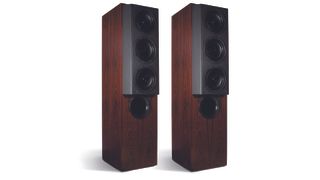You know how it is: you do your research and read plenty of reviews, but the pair of speakers you really want are priced just out of reach. There’s a way around that problem and that’s to buy second-hand. It takes a fair bit more legwork to get exactly what you want compared to buying new, but there is a fair chance they’ll be more affordable. Therein lies the appeal of second-hand hi-fi.
How affordable? Typically, you should find at least a 30 per cent drop in the price of a product that’s just one year old and around 50 per cent on something that’s closer to three years old. After that, the price is determined as much by condition as age.
Of all the various components that make up a hi-fi system, speakers are probably the most sturdy and can give decades' worth of use provided they haven’t been abused. And if they do go wrong, they’re usually relatively easy to repair. All told, second-hand and vintage hi-fi speakers can be a great option provided you avoid a few potential problems...
Do your research
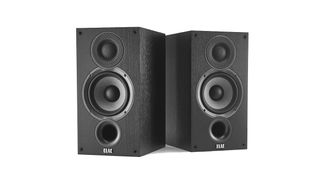
When you buy new it’s a good idea to visit various dealers to compare speakers. This way you can find the perfect pair for you and your system. Things are very different when buying second-hand hi-fi speakers, of course. Unless you’ve heard a pair of the speakers that you’re thinking of buying, you’ll have to lean heavily on speaker reviews to make a decision. While reviews can certainly help to compile a shortlist, they can’t guarantee that those speakers can work well in your system and to your tastes. There is certainly an element of risk when buying this way.
When looking at second-hand speakers on eBay, Gumtree or your local dealer, it’s easy to get tempted by a low price. From experience, we can say that being tempted by a super-low price rarely results in long-term satisfaction.
Instead, we recommend you compile a shortlist of products to consider. Those that will fit into your set-up and sound optimal in the position you’re going to place them. There’s no point picking those bargain-priced premium floorstanders if you’re going to end up with them stuck in a room corner – you’ll never get the best out of them that way, and no matter how low the price it will be money wasted.
- See the best hi-fi and audio deals on new kit
Are the drivers still available?
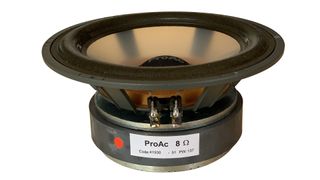
Once you have identified the speakers you want, it makes sense to contact the manufacturer to ensure that spare parts are available in case you ever need them. If the model is still current then that won’t be an issue, but start looking at products that are out of production and things may get sketchy. We would suggest walking away from any model where drive units aren’t readily available or sensibly priced.
You’re not always dependent on the speaker manufacturer, though (unless the drivers are proprietary and made in-house). Often you'll find that the drivers are made by OEM suppliers such as Scanspeak, Audax or SEAS. If that’s the case, then you can buy from one of their outlets. You’ll need the speaker driver’s part number, which is normally indicated on a label stuck somewhere on the unit’s motor assembly. A quick Google search of the number with the OEM manufacturer’s name, and there’s a fair chance you’ll find someone selling it.
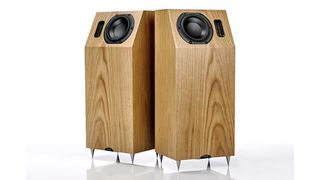
We’ve concentrated on drive units because it’s these that tend to get damaged with old speakers. Tweeters fail if the speakers have been pushed too hard, while older generation midrange and bass units can deteriorate if they use a foam surround. Such foam surrounds have mostly been superseded by the rubber variety in recent decades but if the speakers were made in the last century there’s a fair chance that they will use foam. This tends to disintegrate over time due to the way it ages and reacts with moisture.
If spares aren’t available then there are a number of drive unit specialists that can renovate drivers. Depending on your circumstances it may be worth doing even if there’s a possibility that the driver’s sonic signature may alter in the process.
Aside from the drivers, check the cabinet for damage. It’s not realistic to expect second-hand speakers to be flawless, so minor scratches and dings are probably acceptable. If the speakers have heavier damage that could compromise the integrity of the enclosure structure, however, it’s probably best to pass. While drive units, on the whole, are easily replaceable, cabinet damage doesn’t tend to be an easy or cheap fix. In most cases, it would be best to walk away from a pair of second-hand speakers with an overtly damaged cabinet.
The second-hand buying process
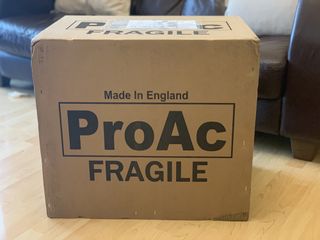
If you’re buying privately it’s always good to know why they want to sell and what equipment makes up their system. Find out as much as you can about the product’s condition. Questions such as this will help you figure out whether the seller is genuine. Those that know more about the product are likely to have looked after them better.
If they claim to have had the product from new, ask to see the original receipt – even better if they have the original packaging. If they do have the packaging at least it minimises the risk of damage when the speakers are transported.
If you’re not able to check the speakers before you buy, ask the seller to send photos of the product showing the drive units and cabinet in close-up. If you can spot issues at this point it may save you from taking it further.
The ideal situation is being able to look and listen to the speakers before you buy them, however it’s not really ideal to do that at someone else's house. Their room and system are unlikely to be the same as yours, so the sound you hear isn’t going to be representative. As mentioned above, ideally do your research on the sound beforehand.
Instead, the reason to listen to the speakers is simply to make sure that they are in good working order, that’s all. Put your ear next to each drive unit and make sure it’s making a sound and that there aren’t any obvious distortions or rattles that suggest all is not well.
If you’re buying from a dealer ask about their returns policy and any warranty they may offer. This is a safety net that you don’t get if you’re buying privately, though you may end up paying a bit more for this privilege from a dealer.
Follow these suggestions and there’s every chance you’ll end up with the speakers of your dreams at a price you can afford. Happy hunting!
View stereo speakers on Gumtree
MORE:
The best speakers you can buy 2022
